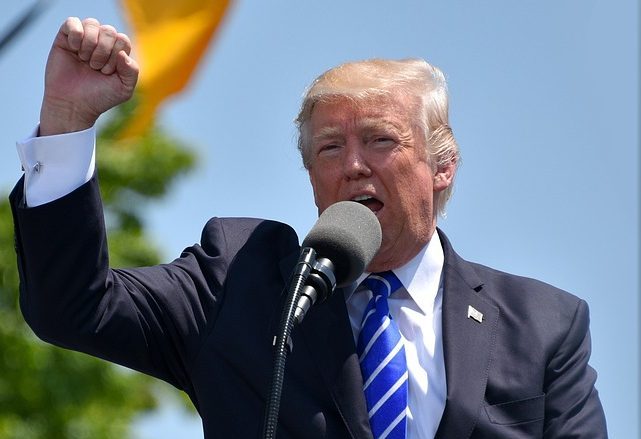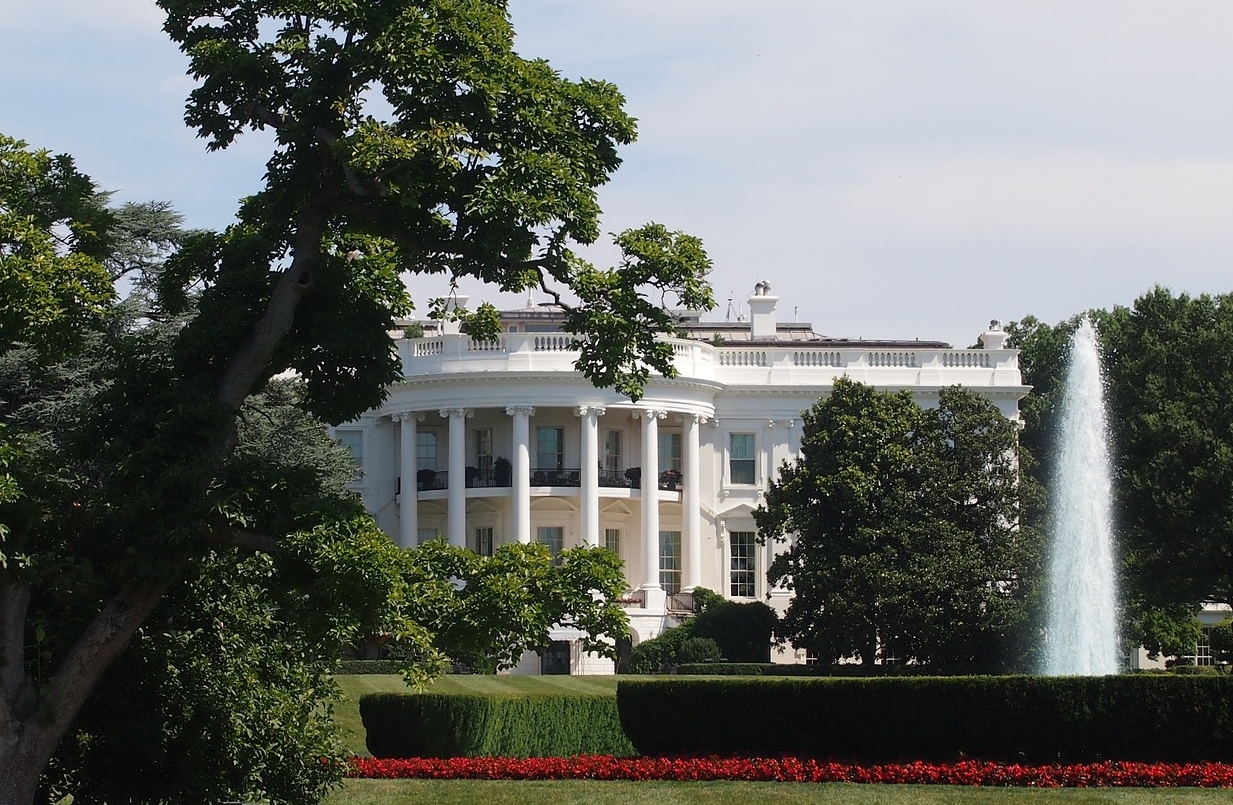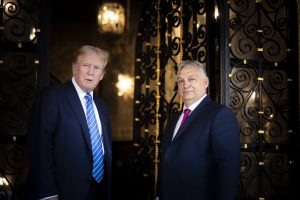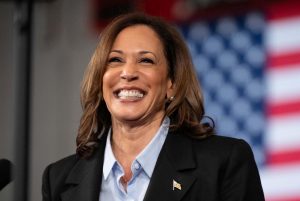
Donald Trump and Kamala Harris battled in the presidential debate over Trump's place among world leaders.Continue reading

The answer to the question raised in the title is of course whether one is a sympathizer of the national conservative side, or that of the opposition landscape. In truth though, both sides in Hungary have demonstrated strongly exaggerated expectations towards the outcome of the U.S. presidential elections in November.
The recent presidential debate between Donald Trump and Kamala Harris has not resulted in a decisive win for either side, unlike in the previous one against President Biden. This did not prevent the main factions within the Hungarian political landscape from declaring victory for one of the Presidents-in-waiting, nor from bashing the other side with passion, either in the press or in certain political declarations.
Listening to the analysis published by Hungarian conservatives, memories of the Trump years between 2017-21 seem to be fading somewhat, as a possible victory for Donald Trump in November is projected to bring about a golden age of Hungarian-American relations. In reality though, while Trump’s former ambassador to Hungary, David Cornstein, may have brought about a period of cordial relations, this did not change the fact that during this period the Hungarian government could not garner effective support from Washington in its political battles with Brussels’ almighty left majority. Although personal relations between Trump and Orbán were very good, the then president was preoccupied with his crusade against his main geopolitical rival, China, to such an extent that he had little enthusiasim left for coming out on the side of his political soulmate in Europe.
If we look at U.S. influence in Europe in general, it is clear that Republicans have an enormous deficit in understanding the Continent’s political landscape as compared to their Democrat rivals, and this fact continues to be a factor in relations between Washington and Budapest. While Republicans have credited themselves with demolishing the Iron Curtain, Democrats have been busy building political and educational networks in Central Europe ever since the fall of Communism in 1989. As a result, their influence over the mainstream media landscape, the NGO network and EU institutions is unrivaled.

Donald Trump (L) and Viktor Orbán in Palm Beach in July. Photo: Miniszterelnöki Sajtóiroda/Fischer Zoltán
Yet Hungarian conservatives are justified in their hopes for a return to a negotiated solution to the war in Ukraine with Donald Trump in the White House, as well as the stabilization of the situation in the Middle-East. On their part Republicans have made some efforts in building up their European sphere of influence – nevertheless, it was Hungary, and the Hungarian political-moral ethos that had succeeded in offering a useful counter-model to U.S. conservatives during the Biden presidency. Not so much with Viktor Orbán’s explicit endorsement of Donald Trump. Instead, his government’s successful family policies, anti-woke ethos and message of national sovereignty have all been received well on the other side of the Atlantic. Donald Trump’s reference to Hungary during the presidential debate with Harris attests to this fact.
On his part, the Hungarian Prime Minister has recently made some efforts to preemptively Trump-proof his country’s growing business relationship with China when he declared “economic neutrality” as the heart and soul of Hungarian economic policy for the coming period. In other words, if Washington and Beijing wish to continue with their trade wars, Hungary reserves its right to stay out of this and trade with both. This concept is of course also an EU-proofing for Hungary’s so called policy of “eastern opening”. How well would this go down with a new Trump White House is anyone’s guess, but for Trump to change the facts on the ground would mean to invest politically and economically in Hungary to a new unprecedented extent. In 2023, U.S.-Hungarian trade was worth around 9 billion USD, while trade with China reached some 14.5 billion USD.
A Kamala Harris victory would invariably open a new chapter in U.S.-Hungarian relations. The Democrats-dominated State Department has, to their frustration, understood that despite a massive anti-Orbán effort through their European proxies in Brussels, punitive measures, financing of the Hungarian opposition press and NGO eco-system, their goal to undermine the Orbán government has met only with limited success. The Hungarian conservative government had proved to be exceptionally resilient against external pressure, and a new Harris White House would have to change tactics in remedying this, although it is unlikely that they aim to turn Hungary into a Cuba-on-the-Danube, as some of Orbán’s foes in Brussels hope.
The extent to which the Hungarian example, that of border protection or anti-woke policies, for instance, resonates with American audiences has not been lost on the Democrats. Only in the past days Hillary Clinton had emerged from her semi-retirement from politics to blast Viktor Orbán as a “democracy-killing Hungarian dictator” to the amusement of probably both sides of the political landscape. Yet the American left seems to have realized by now that the Hungarian conservative narrative is dangerous to their progressive agenda and cannot be simply ignored.
Both sides of the U.S. election battleground understand that our Hungarian model must either be defeated or adopted for one side to declare a decisive victory.
The Hungarian anti-government camp’s dilemma with an endorsement from the American radical-left though is that the vision that today’s Democrats have for the U.S. is deeply unattractive for many among the Hungarian opposition’s voters. Open borders, foreign gang violence, a massive influx of drugs, explosion in crime and that of radical gender policies currently plaguing America is not a model that many Hungarian opposition sympathizers would like being emulated in their own country. Similarly, the current European left has not succeeded in presenting a viable moral or political alternative to Hungarians that could compete with national conservativism as reflected in the Orbán government’s policies, while the U.S. itself had degraded most of its ability to project soft-power during the Biden years due to its internal troubles. Hence although a Harris victory would certainly embolden the Hungarian opposition in its future prospects, the lack of a presentable ally with a shared vision dampens these expectations.

Photo: Facebook Kamala Harris
No matter who will occupy the White House from next year, relations with the United States will remain a crucial issue for present and future governments in Budapest. Although a potentially hostile Harris presidency would stimulate the Orbán government to strengthen ties with its Eastern trading partners, the American model will remain an inseparable part of the fabric of Hungarian democracy. And while bilateral relations have in the past four years moved to a parallel track, consciously bypassing the traditional route via the White House and State Department, they are in many respects stronger than before. Hungarians’ current struggle for freedom and sovereignty has not been part of the consciousness of the American public to such an extent as it is today ever since the regime change in 1989. This presents an opportunity to Hungarian opinion-makers and intellectuals to actively contribute to the world’s strongest democracy’s social discourse during its period of transition.
Feautred Image: Pixabay